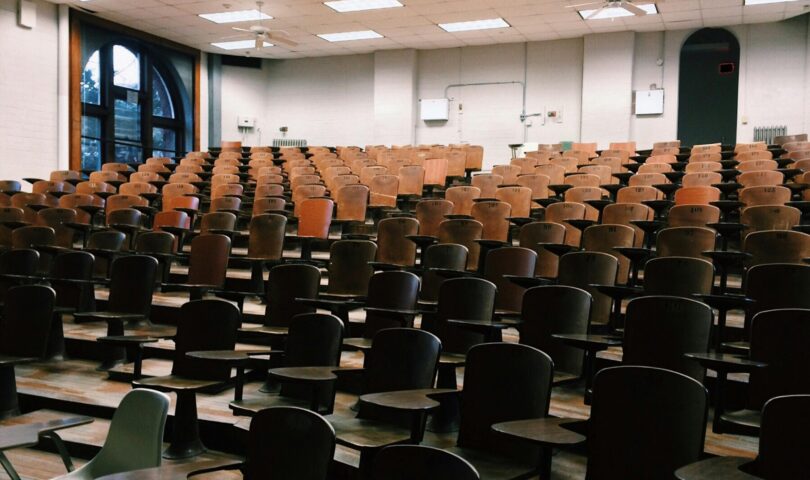
PRO
One of the largest educational discrepancies I have realized coming into college is attendance. All of the college professors I have had so far mandate and grade for attendance, either making it a separate section in the overall grade or looping it into class participation. I have yet to enlist in a course where the professor does not prioritize attendance, and thus, for the most part, my classes are always full. However, this experience is not universal.
I have had several conversations throughout my first year of college where friends and peers have explained that they have not been to several of their classes, and when they do attend, a large number of classmates are not there. While perhaps this occurrence is less rampant at Ramapo, which prides itself in small class sizes, I also have insight from friends at large state schools. Many of whom will go an entire semester without attending a general education course or an elective, keeping up with coursework only through the Canvas page and syllabus.
This culture of skipping class, moreover skipping the majority of classes, entirely undermines the value of attending college. As a humanities major, many of my courses are a combination of lecture and discussion. While I read before class, I understand and make connections with the content only after the hour and forty minutes I spend discussing, questioning and comparing the teachings in person. My professors are often more content when the whole student roster is present, and I argue that at a smaller school such as Ramapo, both the professor and student will get more out of the experience by attending class.
Outside of class engagement, college is also supposed to shape us. After all, we are here for our passions, progressing toward an ultimate degree and professional career.
Class attendance breeds responsible, intelligent and resourceful learners. Disregarding conflicting responsibilities, students should always try to prioritize attending class. The benefits may be intangible, but I promise they will pay off.
sglisson@ramapo.edu
CON
Attendance in college is a long debated topic, especially with many college classes counting attendance towards a large portion of the final grade. It’s reasonable to say that being present in class and participating is beneficial to students’ learning. There are, however, certain circumstances that prevent students from coming to class, and taking points off for attendance can, in the long run, be detrimental to their grade.
Students should be allowed to make their own decisions regarding class, considering the fact that they are paying to attend the class. The average in-state college student attending a 4-year public school pays roughly $26,000 per year.
College can also be a very stressful environment because of factors like heavy course-loads, adjustment to a new environment and relationship challenges. All these things can often be overwhelming for students to handle. Many students like to take days off class to focus on their mental health and catch up on work, but attendance policies make it difficult for them to do that.
Not to mention, getting sick is inevitable for almost everyone, and there is no set time frame for illnesses. Sometimes students will have to take off from multiple classes for a week or weeks at a time, and for a lot of people, with these attendance policies, this would result in a huge drop in their grade.
It might seem unfair to students who are always present in class, seeing others who never show have their grade not be affected. However, it is important to keep in mind that at the end of the day, these are adults who have varying schedules and priorities, and just because they miss some classes does not mean they are not a hardworking student or do not prioritize school.
It’s absurd to expect everyone to be able to attend every class every semester. Conflict is bound to arise with work schedules, sickness and other components that will prevent perfect attendance. Attendance should not be factored into final grades, and professors should be more understanding of their students’ personal lives outside of class.
oparisi@ramapo.edu
Featured photo courtesy of Pixabay, Pexels






